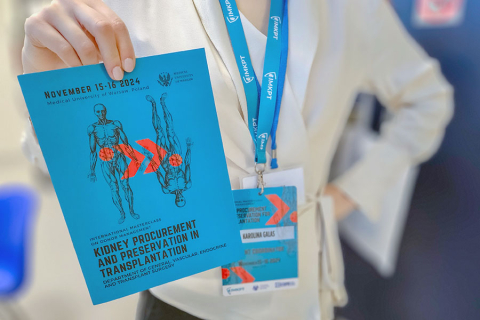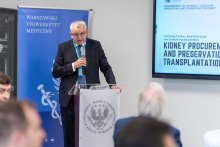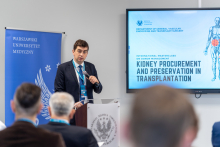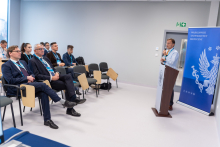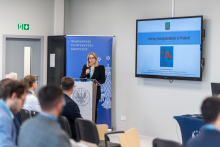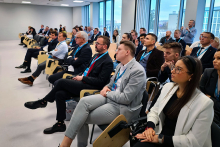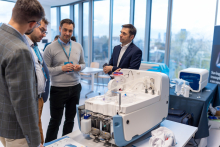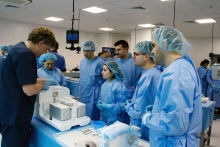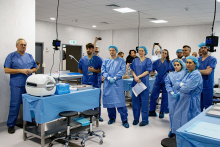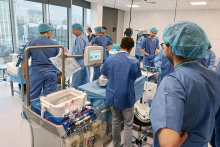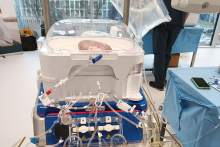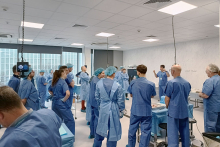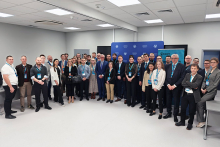The “International Masterclass of Donor Management, Kidney Procurement and Preservation in Transplantation” course took place on November 15-16, in the modern facility of the Medical Simulation Center of the Medical University of Warsaw. It was attended by surgeons, urologists and nephrologists from Latvia, Lithuania, Belarus, Ukraine, Bulgaria and Poland.
The lecture program of the event focused on three main areas of organ donation. Key aspects of deceased donor identification and care were discussed, including marginal donors requiring organ reconditioning before transplantation. Technical issues related to kidney harvesting, management of anatomical anomalies and iatrogenic damage, and emergency procedures were then discussed. However, the greatest emphasis was placed on hypo-, subno- and normothermic preservation options to achieve the best possible transplantation outcomes.
On the second day of the course workshops were held in the Medical Simulation Center’s operating room specially designed for working on wet specimens. Participants practiced connecting and optimizing perfusion of animal kidneys. All mechanical perfusion pumps available in Europe were used for the study.
“Meticulous collection and proper preservation give the organ a chance to regenerate and are the key to successful transplantation,” emphasized doctor Michał Macech from the Chair and Department of General, Vascular and Transplantation Surgery.
The course experts were leading European specialists: Andrzej Barański and Volkert Huurman from Leiden University’s Medical Center; Slijbrand Hofker from Groningen University’s Medical Center; Sarah Hosgood from Cambridge University; Richard Dumbill and James Hunter from Oxford University; Frank Dor from Erasmus Medical Center in Rotterdam; specialists from the Medical University of Warsaw: professors Zbigniew Gałązka, Jolanta Małyszko, Sławomir Nazarewski, Tadeusz Grochowiecki, Michał Grąt and Maciej Kosieradzki, and doctors Mateusz Zawadka, Tomasz Głogowski, Krzysztof Madej and Michał Macech; and Anna Pszenny from Poltransplant.
Keynote lecture titled “International platform building and collaboration: the Consortium for Organ Preservation in Europe (COPE) and its next program” was delivered by Rutger J. Ploeg from Oxford.
The event was held under the patronage of the Rector of the Medical University of Warsaw, European Society for Organ Transplantation (ESOT), Polish Transplantation Society, Young Transplantologist Club, Polish Union of Transplant Medicine and Institute of Animal Physiology and Nutrition of the Polish Academy of Sciences. The organizing committee included: prof. Zbigniew Gałązka (president opf the committee), prof. Rutger J. Ploeg (2nd president opf the committee), prof. Andrzej Barański (vice-president opf the committee)) oraz dr Michał Macech (2nd vice-president opf the committee)).
